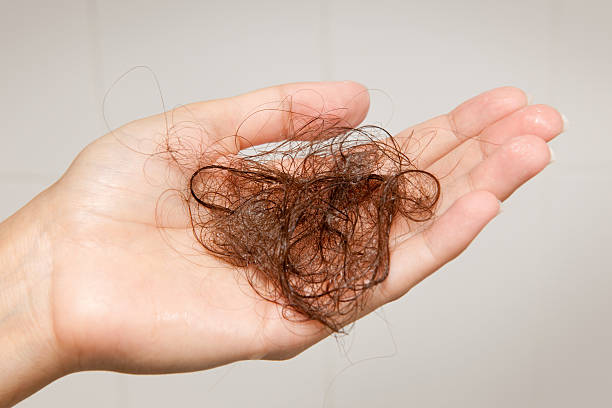
Hair loss is a common problem for a large number of individuals including women and men alike. Hair loss can affect one's confidence and self-esteem. There are many lifestyle and preventive changes you can implement to lessen hair loss and promote healthy hair growth. This guide provides you with the best practical techniques and suggestions to avoid falling hair loss and ensure an enviable head of hair.
The science behind hair loss
Alopecia is a medical issue that is affecting millions across the world. It is caused by various factors, including hormonal imbalances, genetics food deficiencies, medical issues and lifestyle habits. It is essential to comprehend the causes of hair fall in order to implement effective prevention methods. For details information concerning hair loss, have a look at https://www.densanox.com/.
Finding the Roots
It is crucial to identify the reasons behind loss of hair so that you can prevent it from happening. Some of the most common causes are hereditary, hormonal (such as thyroid issues and menopause) poor nutrition, stress, medications, or improper hair-care practices.
Maintaining a healthy diet
It is important to eat an appropriate and balanced diet for hair growth. Make sure your diet is rich in vitamins, minerals and protein. Incorporate leafy greens, fruits, whole grains, protein lean, and nutritious fats into your meals. Stay hydrated daily by drinking plenty of fluids.
Proper Hair Care Routine
Hair that is healthy requires regular routine of hair care. Use a mild shampoo and conditioner that is suitable to your hair's type. Utilize heat-style tools, and avoid the use of harsh chemicals. Be careful not to rub your hair too hard after towel drying. To prevent hair breakage, comb your hair gently with a wide toothed comb.
The use of high temperatures as well as chemical treatments
Utilizing excessively heating tools for styling such as curling irons, flat irons and blow-dryers can cause hair shaft damage and result in loss of hair. Chemical treatments such as perming or relaxing the hair can also cause it to break. Avoid these harsh treatments, and opt for natural hairstyles whenever feasible.
Stress Management
Stress can have a negative impact on overall health, including hair health. Stress can lead to hair loss and alter normal cycle. Use stress-management techniques including regular exercise deep breathing exercises, meditation and adequate rest to lower stress and encourage healthy hair growth.
Guarding hair against environmental damage
Sun exposure, pollution and harsh weather conditions can damage the hair, making it more susceptible to breakage. Wear a hat or use protective hair products when exposed to sun for prolonged durations. Cleanse your hair well after swimming in chlorinated waters to remove any damaging chemicals.
Avoiding Tight Hairstyles and Traction Alopecia
The hairstyles of ponytails or braids could result in excessive tension on the hair follicles and result in alopecia due to traction. It can lead to hair loss particularly around the temples and hairline. Avoid tight hairstyles.
The Blood Circulation and regular Scalp Massage
Massaging your scalp regularly helps improve blood circulation to the hair follicles, promoting hair growth. You can gently massage the scalp with your fingers by circular movements for a few minutes every day. It assists in delivering nutrients and strengthen your hair's follicles.
Taking Care of Overall Health
The health of your hair is directly linked to the general health of your entire body. Be sure to live a balanced life by regularly exercising as well as getting sufficient sleep and addressing any existing medical issues. Conditions like iron deficiency thyroid problems, iron deficiency, and hormonal imbalances can contribute to hair loss. For any health concerns you may need to consult with a doctor.
Using Gentle Hair Products
Choose hair products that are gentle and appropriate for the type of hair you have. Do not use products that are made of harmful chemicals, such as sulfates or sulfates as they can strip the hair of its oils that are natural and can cause harm. Look for products with organic ingredients, and think about using products that are organic, or free of sulfate.
Supplements for Hair Health
Certain supplements can help maintain hair health, and reduce hair loss. Consult an expert in nutrition or a healthcare practitioner to determine if it is necessary to supplement your diet with biotin or zinc. Remember, supplements should complement the healthy eating habits of your family, and not substitute for it.
The time to seek professional assistance
It is important to consult an expert when you are experiencing an excessive loss of hair or any other worrying symptoms. A dermatologist or a trichologist can assess your problem, pinpoint the root causes and provide appropriate treatments or procedures.
Embracing Natural Remedies
Natural remedies can complement the preventive methods to stop hair thinning. It is possible to incorporate treatments such as coconut oil, aloe, or rosemary oil in your regimen for maintaining hair. Although these solutions may not work for everyone, they can provide additional nutrients to hair and the scalp.
Summary
An integrated approach is needed to stop hair loss. It involves lifestyle changes, hair care and the causes that cause hair loss. Use the tips provided in this post to follow measures that reduce hair fall and promote healthy hair. Be aware that consistency and perseverance is the key to stopping hair loss. Be aware of your choices and implement an appropriate routine of hair care to maintain optimal hair health.
